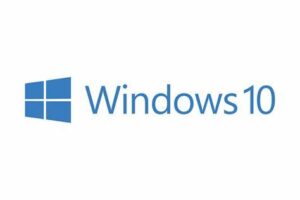1,000s of US film & TV writers went on strike starting Tues. Their demands are pretty familiar & include calls for higher pay – but the union also wants studios & large streaming companies to restrict the use of artificial intelligence (AI).
The Writers Guild of America (WGA) called its 1st work stoppage in 15 years after failing to reach an agreement for higher pay from studios such as Disney & Netflix. The last strike in 2007-2008 lasted 100 days & cost the California economy over $2b.
Guarantees for Staff
Similar to that, the WGA, representing around 11,500 writers in New York, LA, & elsewhere, wants more pay & guarantees for staff. The Guild says average pay at the higher Writer & Producer level has fallen 4% over the last decade.
However, the demand to regulate the use of AI is distinctly 2023. In recent months, with chatbots such as Chat GPT increasing in popularity, many artists, lawyers, & telemarketers have outlined concern about the future of their work. Now, Hollywood writers are joining their concern too.
Rewriting Literary Material
In its proposals, the WGA demands that the use of AI in the Minimum Basic Agreement (MBA) covered projects be regulated. E.g., the union wants to ban AI from writing or rewriting literary material.
The WGA also wishes to see studios committing to not using AI as source material. Finally, the union is adamant that the material, covered by the MBA, would not be used to train AI.
However, it seems that the Alliance of Motion Picture & Television Producers (AMPTP), representing the studios, wants to wait & see. According to the WGA, the other side “rejected our proposal” & “countered by offering annual meetings to discuss advancements in technology.”
Digital Narration Technology
The threat to the fortunes of the writers, actors, & directors seems real, even if moves into AI seem small currently.
In Dec. 2022, Apple introduced digital narration technology, a service allowing book publishers to use human-sounding AI narrators. There’s concern that this innovation could displace 100s of voice actors who make a living performing audiobooks, many of whom are members of the WGA.
However, Apple’s website says that the service will actually benefit independent authors & small publishers & that the new digitally narrated titles will complement professionally-narrated audiobooks.
Chatbots
Screenwriters are more worried about scripts written or rewritten by chatbots. But they do have a legal option. In March, the US Copyright Office stated that content created entirely by algorithms is not eligible for copyright protection. If a production can be legally copied, it’s going to be much harder to monetise it.
WGA negotiators have spent the last 6 weeks negotiating with Netflix, Amazon, Apple, Disney, Discovery-Warner, NBC Universal, Paramount, & Sony, companies under the umbrella of AMPTP. They were unable to reach an agreement.
Wholly Insufficient
“Although we negotiated with the intent of making a fair deal & though your strike vote gave us the leverage to make some gains—the studios’ responses to our proposals have been wholly insufficient, given the existential crisis writers are facing,” WGA said.
“The companies’ behaviour has created a gig economy inside a union workforce, & their immovable stance in this negotiation has betrayed a commitment to further devaluing the profession of writing.”








